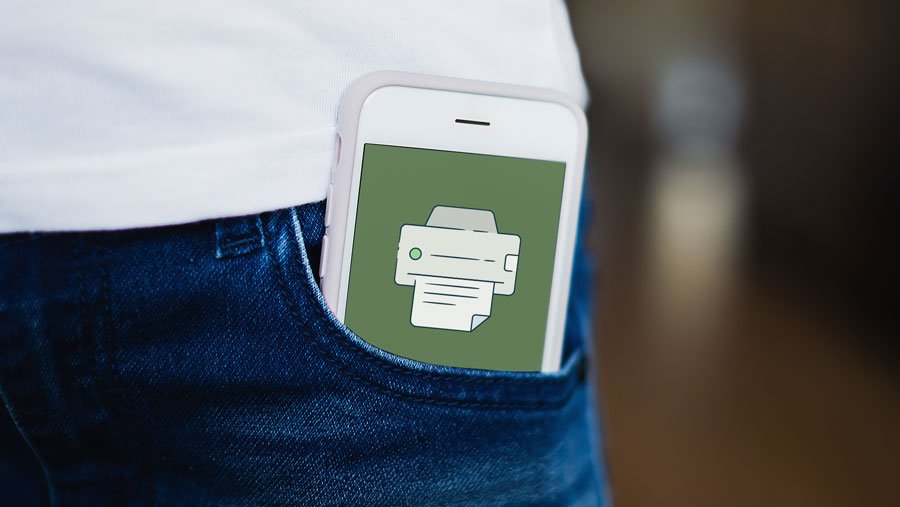
I’m not meaning to be ‘that guy’, but I have to start by bringing up Covid-19. More specifically, the seismic changes that it’s applied to our working lives.
Under more conventional circumstances, organisations would take years to modify long-standing processes completely. They may complete transformation projects for specific tasks, but to completely modify systems and user behaviour, that’s for long-term planners (that’s a task for long-term planning of project managers?). At least it was… Covid-19 accelerated the clock on traditional business evolution like a flux capacitor.
Managed Print resellers rely on the value and annuity from large-scale, centralised print devices and complex network devices with advanced features capable of folding, stapling, hole punching and many more clever things. However clever these wonderful machines are, the one thing they cannot achieve with a piece of paper is teleportation, and Mr Covid prefers that we don’t rub shoulders or share spaces. Paper works best in an office, a single… shared office.
Modern MFD’s can do miraculous things with scans, pieces of paper disappearing into the digital ‘other world’ at a rapid rate of knots. Superb functionality that connects the paper documents they produce and receive to all manner of digital playgrounds. The problem remains that the documents have to be paper to benefit from these next-level skills.
It turns out that for all the hundreds of years of success as the measuring stick for process completion, paper really isn’t able to cram itself down a network cable; it apparently lacks the skill to dissolve and transmit itself through the airwaves. And if no one in the office who’s going to print and scan it, it remains in the ‘chocolate teapot’ category of helpful.
To be a successful, current medium of data transmission, paper really needs to not exist on, well, paper. At best, this is problematic if your revenues are dependent on the existence of devices that create paper documents. At worst, it’s going to be pretty disruptive. A counter-argument suggests that print will evolve to smaller, distributed devices, home working, and more placements. All this is true, but it comes with its own baggage.
Service annuity is the lifeblood of the Managed Print reseller, and service is a betting game; make too many visits to a machine, and the margins are gone. Print too few pages, and the next consumable flattens the profit. Many small, infrequently used devices amount to a riskier game; you end up with more calls, more consumables, and fewer pages.
We need a device that can efficiently deliver secure ‘printed’ documents to their intended recipient. They need to be in a format, like paper, that can be annotated, distributed easily, filed efficiently and duplicated where required. In addition to this, we need to scan multi-page documents and deliver them seamlessly to our chosen digital hideaway.
Perhaps more importantly, this miracle device needs to require minimal support; and be remotely-supportable to minimise the need for visits. It needs to be flexible in size and form to fit any office environment, from the boardroom to the kitchen table.
If our commercial wish list were to keep growing, we would want a range of component options to size, modify and flex commercial agreements. Ideally, we would like to have components to bring these new miracle devices in line with ‘old normal‘ margins. And the real prize would be a methodology that we already understood and that our customers recognised us as the resellers of.
As I type this next sentence, I can already hear the collective sighs! The mutters of ‘Teams’ or ‘Google’, grumbling about complexity, competition, user confusion, and thin margins; and all of those mutterings are right. Users can have Mr Microsoft’s Teams or Madam Google’s playthings. However, they are not modelled to work in the same way that businesses have invested. The use of purely software solutions requires a brain adjustment for a large percentage of the workforce.
Even clever types need some show and tell to get any level of efficiency with a spoonful of Microsoft. Just ask a million homeschooling parents right now; entire tribes of people for whom the tools’ logic is simply not logical. But, if you ask those people to print a document most can manage File > Print, it’s familiar and logical. We know how to buy it; who to talk to about it and what to expect. We already have software to manage it, to track its use, contracts to maintain its quality and reliability; we understand it… we just don’t need the paper bit.
Using Foldr as a print output device, organisations can work the way they have for years, with the added benefit of not needing paper; by simply removing the need for printed pages to touch, paper customers can have print devices that suit any office environment. They can manage the users’ access to the pages, they can track the usage through applications such as PaperCut with all the benefits it delivers. What’s more, they can take their whizzy personal MFD wherever they go in the back pocket of their jeans, assuming we are ever allowed to go anywhere ever again, of course!

From a commercial perspective, we can return to the old days of cost reduction justification by removing VPN services, reducing the cost of specific IT hardware and email accounts to facilitate services no longer needed. Just like the good old days, we can build a customer deal, how refreshing! Oh, and we don’t have to be in the cloud. This is a customer’s own toy that can make the best of all manner of clouds should they wish.
Better still, other features can be added, just like an MFD sale. The basics are in the box, but we can go clever. Want your new ‘printer’ to be able to tell what a document is by looking at it and to store the relevant bits of information off of it for reference? Why wouldn’t you? It’s a small upgrade. Fancy making all your files searchable on content, location or metadata, regardless of where you left it or how long it’s been there? Yes? We thought so! And yes, it’s a small upgrade.
The key thing is simplicity. I want to do my work, print my document, and put it where I’d like it. Do what I need with it; I just don’t want to spend hours trying to fold it small enough to fit down a network cable.
Foldr. Glad that was easy.